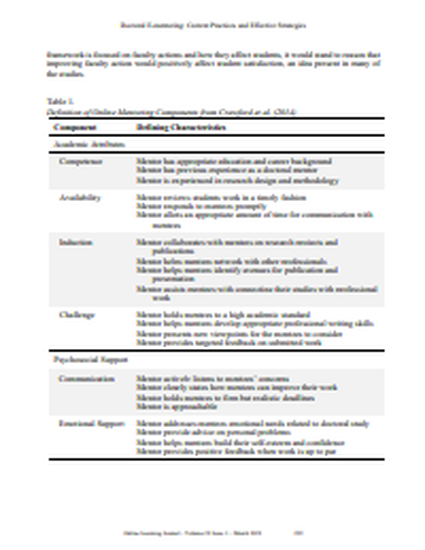
Effective mentoring has been viewed as the cornerstone of a successful doctoral experience. Traditional doctoral education uses an apprenticeship model for mentoring to help students learn what is required as an academic professional. However, online environments present unique challenges to creating and maintaining mentor-mentee relationships. Using keywords specific to e-mentoring and online graduate education, literature searches were conducted to isolate relevant research from the last decade. From this literature, it was possible to synthesize current practices in e-mentoring and identify effective strategies to use for doctoral students conducting research. Using the Yob and Crawford (2012) framework, results were organized into the following six independent categories: Competence, Availability, Induction, Challenge, Communication, and Emotional Support. Other aspects that impact the mentoring relationship are also discussed.
Available at: http://works.bepress.com/jesus_trespalacios/25/
